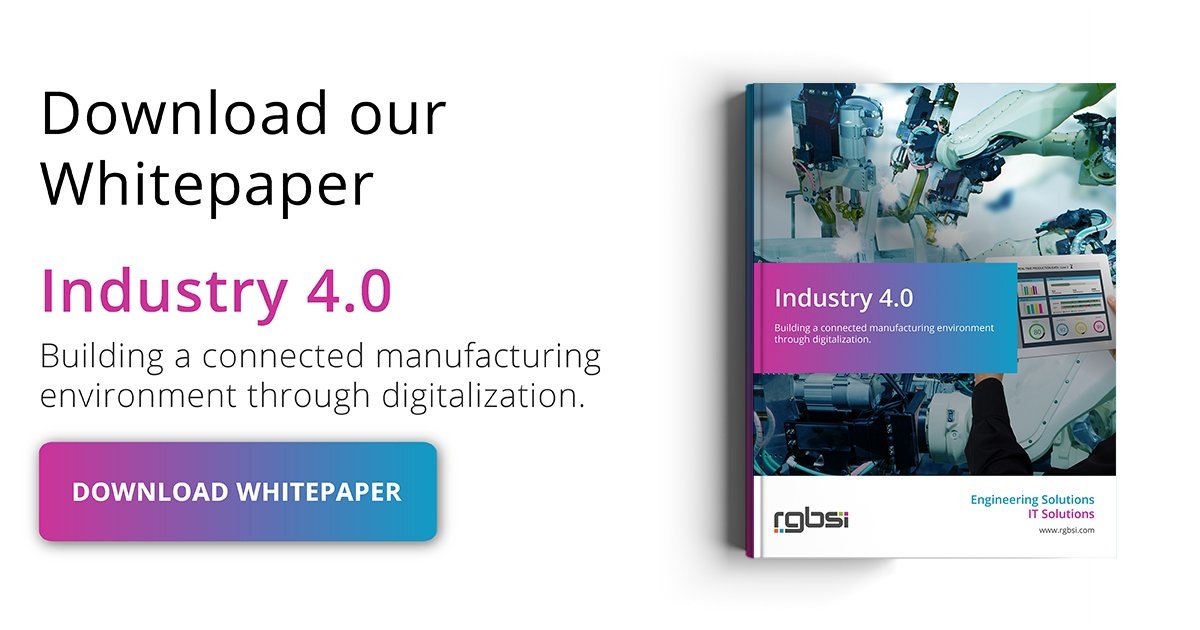
What is big data analytics?
Big data analytics is the use of advanced computing technologies on huge data sets to discover valuable correlations, patterns, trends, and preferences for companies to make better decisions. In Industry 4.0, big data analytics plays a role in a few areas including in smart factories, where sensor data from production machinery is analyzed to predict when maintenance and repair operations will be needed. Through application of it, manufacturers experience production efficiency, understand their real-time data with self-service systems, predictive maintenance optimization, and production management automation.
How do businesses use big data analytics?
Businesses use big data analytics to improve business decisions by understand patterns and picking up on trends from huge amounts of customer data.
How is big data analytics used in Industry 4.0?
Manufacturers use big data analytics in the same way as most other commercial entities except with a narrower focus. They collect huge amounts of data from smart sensors through cloud computing and IIoT platforms that allow them to uncover patterns that help them improve the efficiency of supply chain management.
Big data analytics can help them discover hidden variables causing bottlenecks in production that they didn’t even know existed. After identifying the source of the problem, manufacturers use targeted data analytics to better understand the underlying cause of bottleneck variables. This helps manufacturers improve output while reducing cost and eliminating waste.
Production efficiency and assets are everything the manufacturing industry. The manufacturers’ ability to maintain their means of production and keep schedules tight and on track can mean the difference between a good reputation and a bad one. Big data analytics reduces breakdowns and unscheduled downtime by about 25 percent.
Big data analytics is crucial to real-time performance, supply chain optimization, price optimization, fault prediction, product development, and smart factory design.
Big Data Analytics through Self-Service Systems
Adopting self-service analytics in engineering can help consolidate large bulks of big data from production plants. For example, global chip-maker Intel has smart factory equipment that sends real-time data into a big data analytics system. The self-service system then breaks down the real-time data and finds patterns, detects faults, and creates visualization for key decision makers.
Big Data Analytics and Predictive Maintenance
Engineers use big data analytics output generated from the system to make decisions. With this information, they prioritize changes and actions to be taken to avoid unscheduled downtime or equipment malfunction.
Big data analytics is synonymous with predictive maintenance and in Intel’s case, reduces reaction time drastically. Without big data analytics, reaction time is about 4 hours. With it, that number is cut down to 30 seconds. The savings were huge, estimated figures were $100 million in savings.
Automate Production Management with Big Data Analytics
Another way big data analytics is used by manufacturers is to automate production management. This implies reducing the amount of human input and action needed in a manufacturing facility. It works by analyzing historical data of a production process, coupling it with real-time information of that particular production process, and automating physical changes to equipment using actuators and advanced robotics that are connected to control software. The control software takes inferences made from big data analytics and sends out targeted commands to these actuators and robots that will physically alter settings on equipment and machinery without any human intervention whatsoever.
About RGBSI
At RGBSI, we deliver total workforce management, engineering, quality lifecycle management, and IT solutions that provide strategic partnership for organizations of all sizes.
Engineering Solutions
As an organization of engineering experts, we understand the importance of modernization. By pairing modern technology with design expertise, we elevate fundamental engineering principles to accommodate growing product complexity requirements. We work with clients to unlock the full potential of their products and enable future innovation. Learn more about our automation and digital engineering services.
IT Solutions
We work with clients to support IT related areas of application development, ERP, infrastructure, project management, and digital engineering.
Learn more about our IT solutions.











